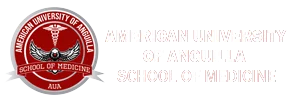

Blogs
5 TIPS ON HOW TO STUDY FOR CARIBBEAN MEDICAL SCHOOL
Starting Caribbean medical school is a dream come true for many students. But, studying in Caribbean medical school is no walk in the park. Having some trusted and well-known study strategies at your disposal can make you feel confident as a medical student and more prepared on test day. Medicine.
HOW TO SUCCEED IN CARIBBEAN MEDICAL SCHOOL
If you’re wondering how to study for Caribbean medical school efficiently, or you think your current medical school study techniques could use a tune-up, read these tips to help you on your way.
1. Manage Your Time Outside of Class
Managing your time is essential when considering how to study for Caribbean medical school. Although it may seem like there aren’t enough hours in the day to accomplish all of your study goals, taking it day-by-day and establishing a routine will help secure your success. By prioritizing your tasks, planning ahead and taking breaks, you can be more confident and more effective as a medical student.
2. Remember The Importance of Notes
Everyone knows that you should take notes during lectures, but do you also take notes while
reading? One of Caribbean medical school’s challenges is that it throws a huge amount of information at
you over a short period of time. A key to mastering the material is to organize it properly, noting
the most important information as you absorb it. This will help you learn the information as you
record it and the notes will prove valuable for review as a study guide.
Taking notes can also help you understand complex material. Writing things down in your own
words—effectively explaining it to yourself—may help you understand a subject or idea that has
been troubling you.
3. Drill Until You Make it
You may have been able to get through undergraduate courses by cramming for exams, but
that is not among our medical school study tips—cramming is a recipe for failure. There is too
much material to learn in a med school curriculum, and too much memorization. You need to
make your learning continuous, make testing yourself routine, and revisit material regularly.
Otherwise, when it comes time for the exam weeks later, you may well have forgotten critical
information.
It’s easy to think you understand the material, but testing yourself can help you identify areas
where you’re shaky. Take advantage of any study materials and use review questions to
develop flash cards. Flash cards provide cheap, convenient, and effective memory aids.
Everyone could use an effective memory tool when there is so much to learn and remember.
4. Use Every Memory Trick in the Book
Another study tip for medical school is the use of mnemonic devices. These devices include
various strategies to memorize information. For example, you might use the acronym FAST to
remember that the signs of a stroke are Face, Arms, Speech, and Time. Doctors have so many of
these acronyms that it sometimes sounds as if they are talking in code!
Another common trick is setting information to music, especially catchy tunes that get stuck in
your head. The catchier the song the better, because an irresistible refrain can help you
remember a lot of important information.
5. Don’t be Afraid to ask for Your Help
If you find yourself struggling with one area of study in particular, do not be afraid to look for help.
A fellow student may offer solutions, or you may turn to an instructor, especially if you feel confused. Don’t be too proud or shy to approach a professor with questions when the material is unclear to you. Usually, instructors are happy to explain further. Instructors are well suited to provide you with study techniques for medical school - they’ve been there before. You may be surprised by how many other students are also asking for help. Students often struggle with the same material, precisely because it’s difficult.
